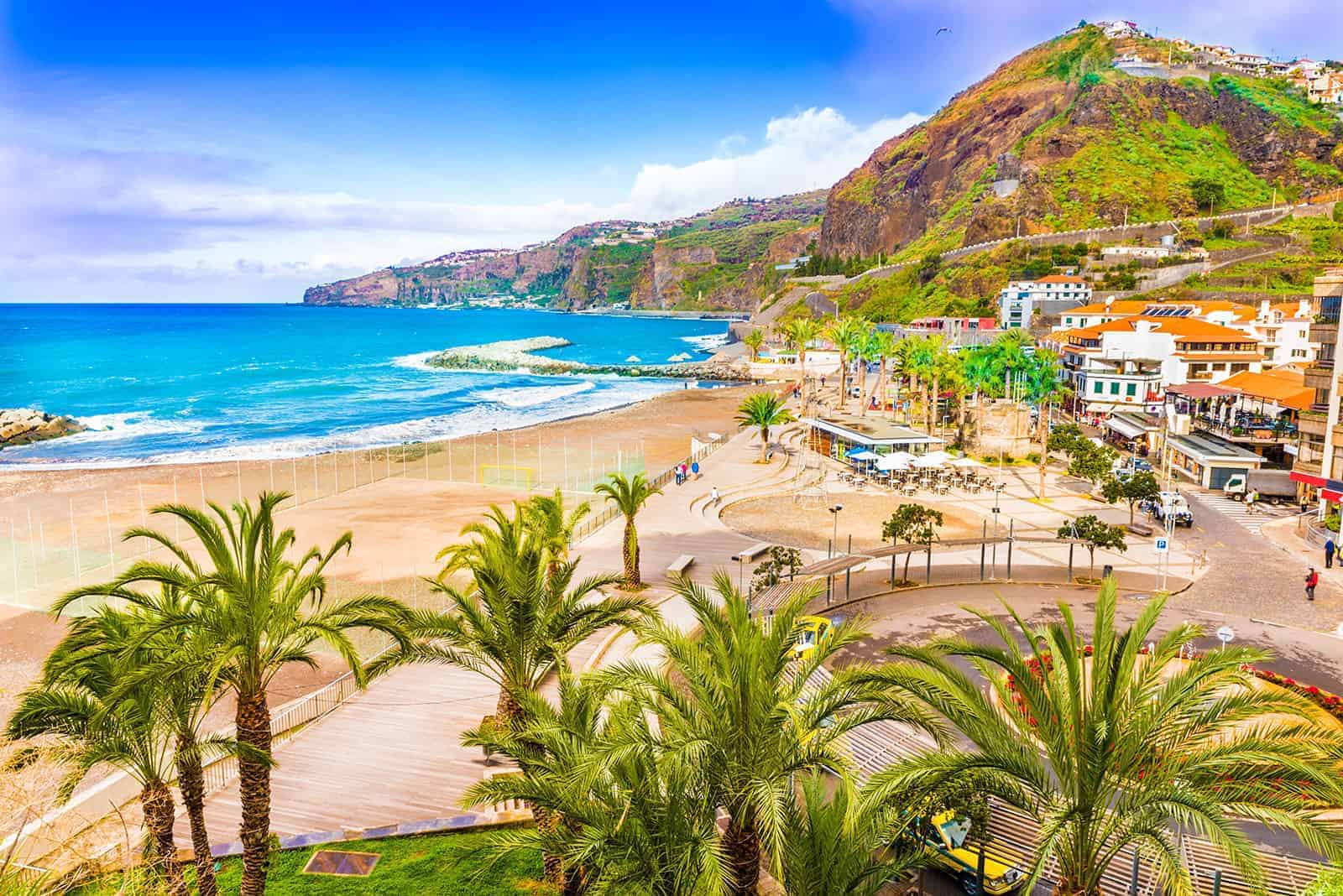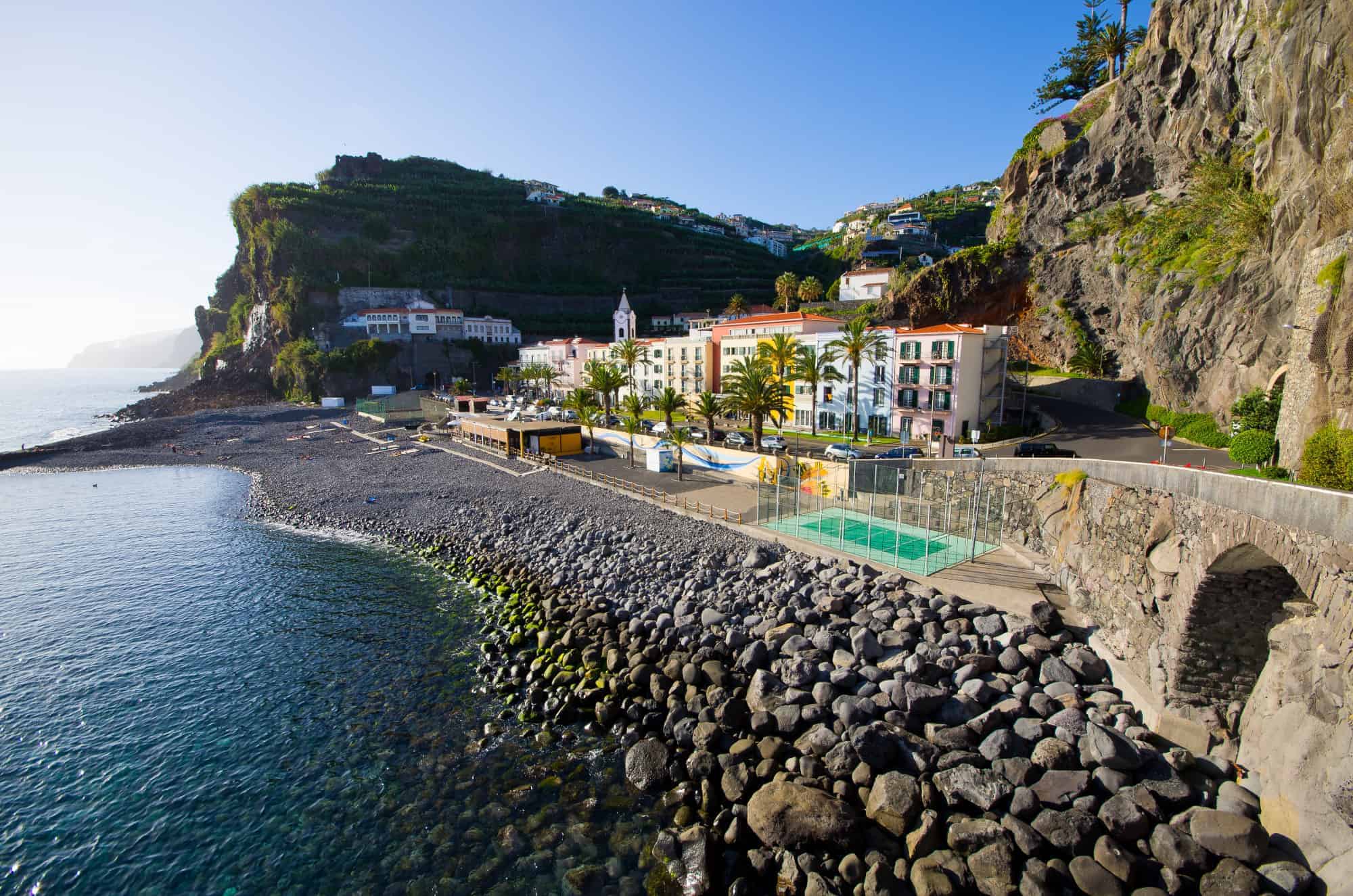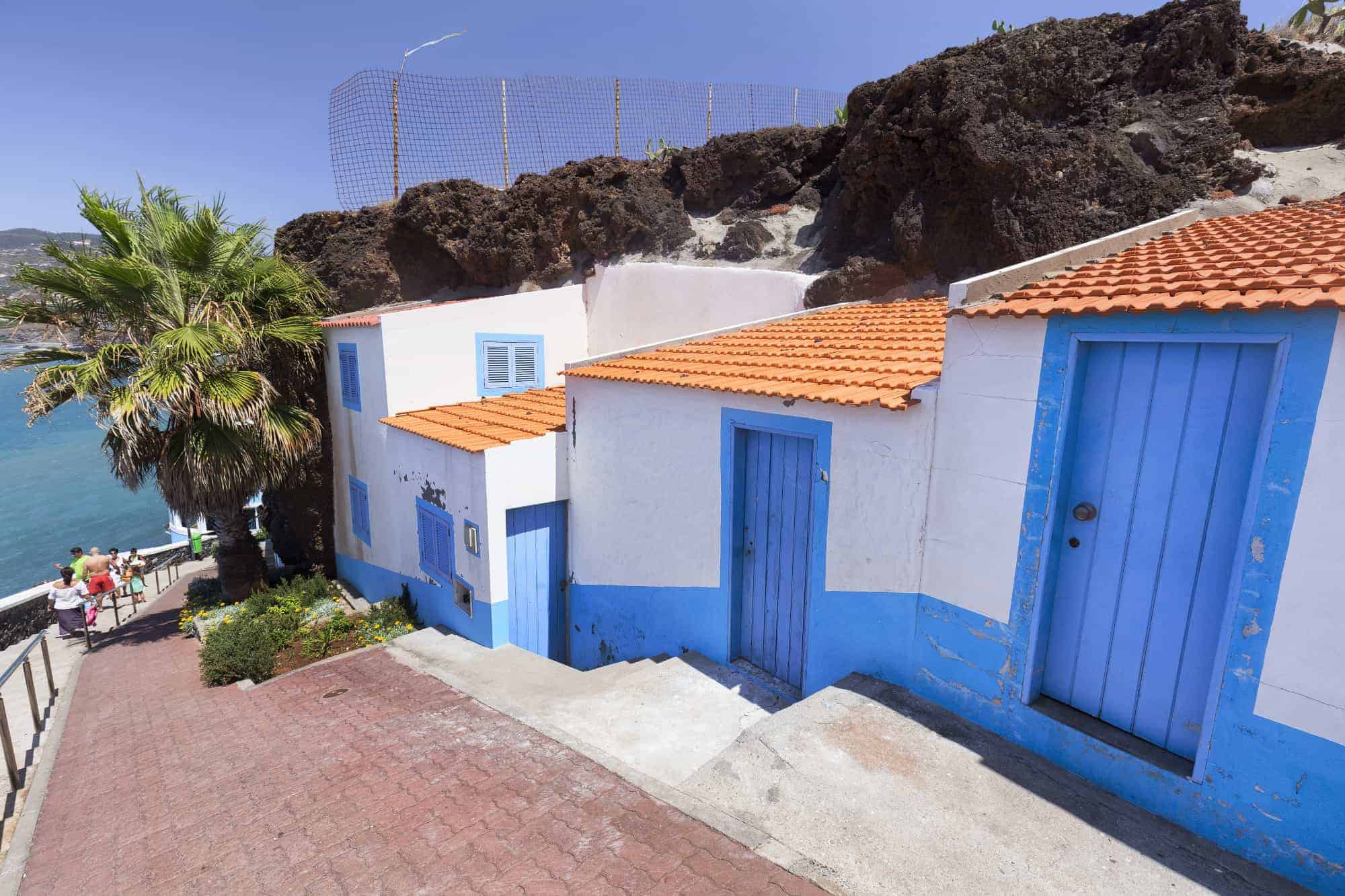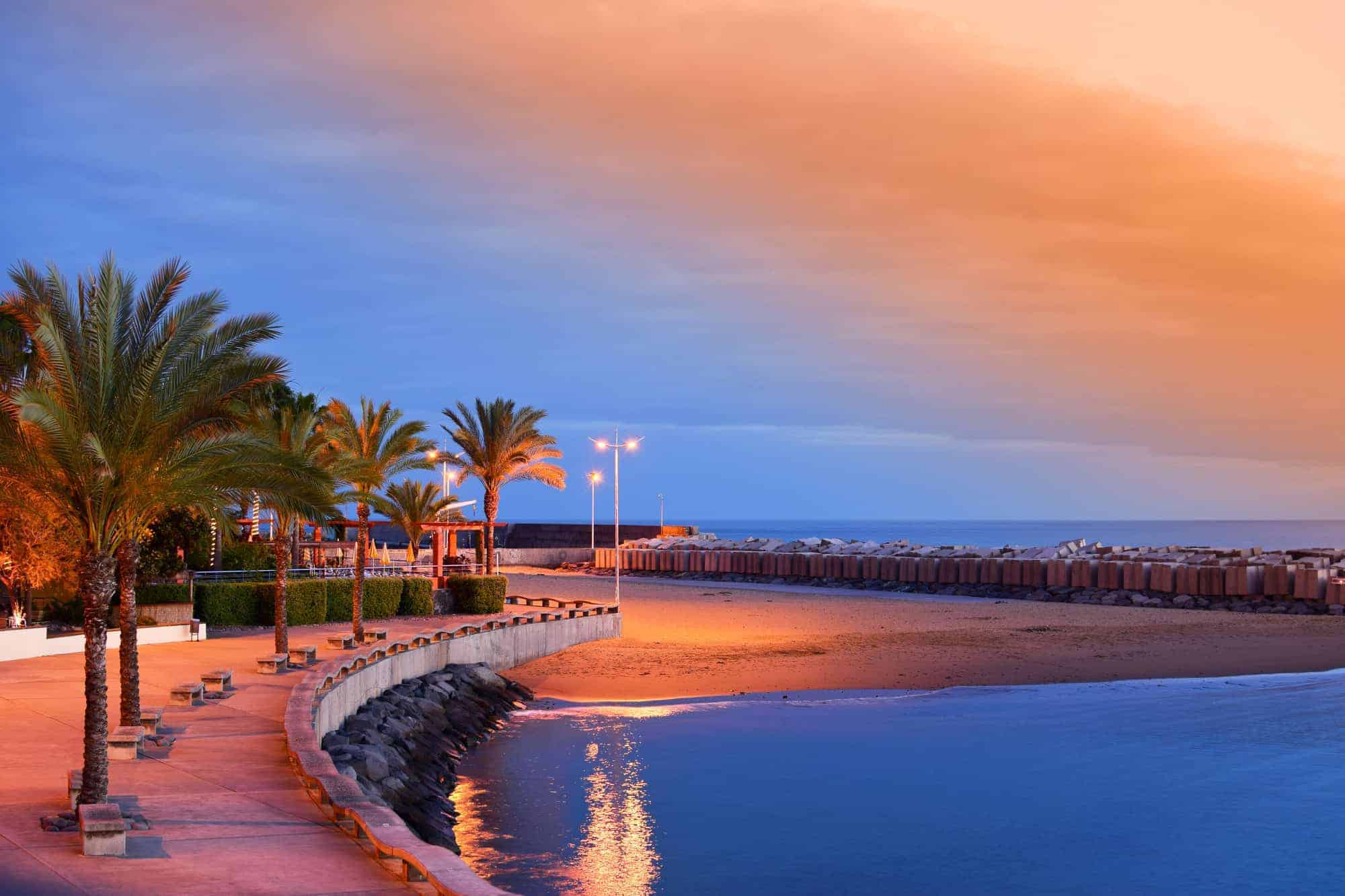What comes to mind when you think of Portugal?
Perhaps it's the stunning coastlines and natural surroundings? Maybe it’s the welcoming people, vibrant culture, and delicious food? Whatever it may be for you, there are so many reasons expats from all over the world look to move here.
Many expats chose to live in the Algarve, as it is one of the most popular locations to live in Portugal. However, if a relaxing alternative Portuguese lifestyle in a beautiful island setting sounds like you, you should consider living in Madeira.
Secure Peace of Mind with Best-Value International Health Coverage
International Citizens Insurance provide free, no-obligation quotes from the leading international health insurance providers with plans tailored to meet your needs. Trusted by thousands of expats worldwide.
Madeira - island life with a Portuguese twist
Made up of two inhabited islands, Madeira Island and Porto Santo, the Portuguese archipelago offers expats an excellent taste of island life with a Portuguese twist.
Porto Santo is famous for its long sandy beaches, whereas Madeira Island is home to some of the most stunning natural landscapes in the world, and makes for a slightly easier transition from abroad.
So, should you need more convincing to consider moving here, let’s take a more in-depth look at life in Madeira.
Is Madeira a good place to live?
In short, yes. For starters, the mild climate makes it a very attractive place! The sub-tropical climate means temperatures rarely drop below 20 degrees celsius even in winter.

With low crime, captivating views of nature, and a laid-back lifestyle, Madeira has all the benefits of both Portuguese and Island life without the oversaturation of expats found in locations such as the Algarve.
Most inhabitants of Madeira Island live on or near the coast, and the vast majority of properties that expats favor are blessed with the most incredible Atlantic Ocean and mountain views.
The climate, the landscape, and the genuinely laid-back and friendly people all make Madeira an increasingly popular choice for those seeking a real alternative location overseas.
The slow-paced lifestyle suits those looking to enjoy peace and quiet.
Madeira also offers everything one might need for a comfortable life.
If wandering cobbled streets or along harbours through countless bistros and cafes, hiking through nature, or visiting beaches sounds good to you, then look no further for your ideal destination.
There is a good expat community in Madeira, with expats hailing from the UK as well as other parts of Europe and North America.
Connecting to these groups is easy via Facebook or through local services such as the English-speaking church. On that note, English is widely spoken, particularly in tourist areas such as Funchal.
Food, healthcare, and other services are widely accessible and affordable. There is pretty good public healthcare and a brilliant private healthcare system for you to access. International health insurance is also available.
To make sure you get the best value for money, compare international health insurance options from various providers to find the best deal.
Getting around is easy with an efficient bus network in place.
Furthermore, the temperate climate allows for a very comfortable lifestyle. You’ll never need a winter coat, and you can forget heating bills, all thanks to the warm weather.
Time in the sun is great for your overall well-being thanks to the regular intake of vitamin D. Plus, this weather will encourage you to go out more, leading to a more active and healthier overall lifestyle.
The pros and cons of living in Madeira
Like anywhere in the world, there are a few ‘downsides’ to living in Madeira:
1. Everyone is very laid back
One consequence of living in such a relaxing place is that people can become quite laid back - an attitude that can work against productivity.
As a result, business tasks, formalities, or anything involving red tape can take longer than it would in faster-paced cities. This could include things such as your residency, so a great deal of patience is required.
2. Portuguese is a pretty hard language to learn
Although English is widely spoken or at least understood (particularly in the capital of Funchal), it is always helpful to learn as much of the language as possible.
Portuguese is notoriously difficult to learn, so this can be a slight hurdle to settling into life here.
3. Finding a job is not easy
Furthermore, the language barrier can make finding work harder.
Permanent work is not always easy to come by - particularly for non-Portuguese speakers. Fields such as IT, Health, and Tourism tend to be the best source of employment for expats.
Seasonal work is much easier to come by, given the heavy influence of tourism on the island. This can include hospitality, teaching, or other areas.
If you are relocating here permanently and hope to find permanent work, research and plan ahead.
4. Public healthcare is a bit overloaded and underfunded
The healthcare system has received slightly mixed reviews. However, the majority of sentiment is positive.
There is an adequate public system with private care also available - appointments with a private GP can cost as little as €55.
5. Pebble beaches

Should you really wish to cherry-pick for cons, most of the beaches (particularly on the island of Madeira) are pebble rather than sand. That being said, Porto Santo is blessed with a famous 9km (5.5 miles) sandy beach.
The pros of living in Madeira
The good points of moving to Madeira, however, most certainly outweigh the bad.
1. Lower cost of living
For starters, the cost of living is lower than in the UK or North America.
Despite being an island, you have ready access to everything you need - as long as you don’t mind waiting for certain things.
Properties are also cheaper and offer mountain and ocean views.
2. Slower and less stressful lifestyle
The pace of life is slower, reducing stress and improving your overall quality of life. Surrounded by mountains and beaches in excellent weather, you’d be forgiven for unwinding a bit here.
The food is excellent both in supermarkets and restaurants alike, with top-quality restaurants all over the island - including a Michelin-star restaurant.
3. It's all about the outdoors
As you can imagine, in a place blessed with this climate, there is no shortage of outdoor leisure on offer.
Whether it be taking yourself to the beach, getting lost amongst the natural landscape on hikes and treks, various outdoor and water sports, or cultural sights such as museums and galleries.
There is even a theatre and an orchestra.
4. Fairly good infrastructure
You can get English cable channels and radio stations. The internet is also widely available, including free WiFi hotspots throughout Funchal.
5. Plenty of entertainment available throughout a year
It’s also worth mentioning that life on the island can be quite vibrant amidst the typical relaxed lifestyle.
There are two major football teams, and in keeping with typical Portuguese attitudes, they are passionately supported and can be seen live in large stadiums.
Madeira is also famous for one of the world's largest New Year fireworks displays.
The harbor is filled with boats and cruise ships, illuminating the sky in a truly mesmerizing spectacle. Other high holidays, such as Christmas, are widely celebrated - just don’t expect a white Christmas.
6. Good transport
Transport on the island is also excellent. Whilst there are no trains, there is an efficient network of busses used by locals and tourists and great roads (some with amazing views).
Is it expensive to live in Madeira?
Like anywhere in the world, the cost of living is directly reflected in the lifestyle you choose to lead.

That being said, Madeira is a very affordable place to live. The cost of living is lower, and property is cheaper than in North America, Northern Europe, or the UK.
You have access to everything you could need - be it clothes, appliances, or food - you simply may need to wait for certain items (it is an Island, after all).
Although getting to Madeira can be costly, once there, you can live very comfortably on a reasonable budget.
The temperate climate means heating is a thing of the past (a huge saving), and air conditioning is only required should you wish for it in the summer.
You can get a pint for as little as €2, meals at a restaurant for €5-10, and a cinema ticket for as little as €6.
Getting around by car is very convenient, and given that the island is small, you’ll rarely be making long commutes for work or leisure, so you can say goodbye to the expensive train fares.
It is worth mentioning that certain essentials, such as electricity and petrol, come with a slightly higher price tag without being unreasonable. This is typical of islands and remote locations.
Where is the best place to live in Madeira
Where you choose to live in Madeira is entirely dependent on the experience you’re after.
If you’re seeking peace and quiet, then it's hard to look past Porto Santo. The archipelago’s second-largest island, it's famous for its long sandy beach.
With many properties of various types readily available, this could be the perfect quiet corner of the world to put your feet up in. Plus, Madeira island is only a short distance away should you desire an occasional taste of metropolitan life.
For more variety, consider the following spots on Madeira Island:
Calheta - home for the sun seekers
Made up of seven villages (Doutor, Salão, Brasil, Vila, Estrela, Laranjeiras, and Atouguia), Calheta is excellent for families. Home to an artificial sand beach, it has a healthy dose of local culture, as well as massive celebrations and festivals!
Ponta do Sol - a taste of tradition in a natural setting
Set upon tall cliffs, Ponta do Sol will amaze you with its stunning views, dramatic ocean walks, and warm climate (the region is known for bananas).
One of Ponta do Sol's main features is its traditional houses with whitewashed walls, tile decorations, and red roofs. This is also one of the most affordable areas for buying property.
Sao Martinho - an excellent all-rounder
Sao Martinho strikes a nice balance between quiet and bustle, given its popularity with tourists.
This is an excellent all-rounder, particularly for those wanting access to services. Here you’ll have easy access to malls, restaurants, bars, and the famous Lindo and Formosa beaches.
Funchal - a more urban lifestyle

Finally, for those seeking a more metropolitan lifestyle, the capital of Funchal is the place for you.
This is the central business district of the island, offering a wide variety of shops, bars, restaurants, and other attractions to residents. This is the most expensive area of the island to live in, although it is still very affordable.
Moving to Madeira from a non-EU country
If you are planning to move to Madera from a non-EU country such as the UK, USA, Canada, etc., plan to get residency first. There are ways to get residency without too much fuss if you use professional advice.

The easiest way is through the Portugal Golden Visa program by investing in the country.
Once you’ve successfully obtained this visa, you will have five years of residence in Portugal. At the end of those five years, you can apply for citizenship or permanent residency.
Both options have great perks - citizenship will earn you a passport, whereas residency will renew every ten years. One particularly attractive feature of the Golden Visa is its flexibility - you only need to spend an average of 7 days per year in Portugal.
Another option is a D7 visa. This is a visa for retired foreign citizens or other foreigners with passive income from rented properties, intellectual property, or financial investments.
Read more about residency options in our Living In Portugal guide.
If you have questions or need more information about your Golden Visa or D7 visa options, contact us via our page on Residency and Citizenship. We will be happy to help.
Expats in Madeira
There are quite a lot of expats living in Madeira. There are no major expat clubs at present. However, there are Facebook groups you can access.
The British Church is a focal point for the community residing in Madeira.
Differing from other areas popular with expats, Madeira has no gated communities, and larger apartment blocks are few and far between, which means moving here, you will live amongst the local community and soak up the culture.
Digital nomads in Madeira
And as the nomad lifestyle has become more attractive and popular, digital nomad villages are springing up around the world, and Madeira is not an exception.
There are several spots where digital nomads can find all the facilities and infrastructure they need, share workspaces with international communities, and enjoy the lifestyle the archipelago has to offer.
If you want to set up a startup in Madeira, there's Startup Madeira, a local government organization supporting entrepreneurship on the island.
Setting up a company in Madeira
This section is written by Zarin Buckingham, our Madeira expert. Zarin helps expats, retirees, and digital nomads move to Madeira through her Madeira Relocation Services. If you have questions or need help and advice, comment below or contact Madeira Relocation Services directly.
If you are planning to start a company, make sure your goals and activities are clear.
Will your company’s income be coming from within or outside of Portugal, and what kind of income and profit are you expecting?
Portugal has a high taxation rate for activities that earn income in Portugal. However, there are various programs that provide tax benefits.
Although some of them sound extremely favorable, choosing the wrong path can have an adverse effect on your finances.
For example, registering a company with the International Business Center of Madeira (also known as Madeira Free Trade Zone) offers one of the lowest corporate tax rates in Europe and attracts many international corporations to Madeira.
However, this comes with annual fees and special accounting requirements that could be costly for a small company. Instead, it would do best to register a simple company within the Chamber of Commerce.
An accounting firm may encourage you to register with the Free Trade Zone, and you will be paying a relatively high monthly retainer for their special accounting services without really needing it. It is wise to ask a lot of questions and analyze your options before you make such decisions.
Living in Madeira - summary
Madeira is often voted one of the best islands in Europe and offers expats an excellent opportunity to live the life most people dream of.
Life amongst nature, surrounded by the ocean, and escaping the bustle and expenses of major cities, Madeira is perfect for retirees, families, and digital nomads alike.
A home for the relaxed and thrill-seekers, Madeira will only enhance your quality of life for the better. So if you’re planning a move and considering Portugal, you really can’t go wrong with the beautiful island of Madeira.
Other popular locations in Portugal to consider:
- Living In Setúbal
- Living In Lisbon
- Living in Viseu
- Living in Cascais
- Living In Sintra
- Living In The Azores
You might find helpful:
- Best Places To Live In Portugal – a detailed overview of Portugal’s most popular locations for expats
- The Guide To EU Golden Visas - Essential if you're looking for a fast-track way to get full EU residence
- Living In Portugal As An Expat - The Absolute Relocation Guide - an expat guide to settling down in Portugal: residency, healthcare, the cost of living, the pros and cons, etc.
- How To Buy A Property In Portugal - a complete guide to buying your dream home in Portugal.
- Didn’t find what you were looking for or need further advice? Comment with your question below, and we will do our best to help.
Helpful external links:
- Find information about traveling to Madeira on the official Madeira airport site.
- Digital nomads and startups can find a lot of useful information on the DigitalNomads. StartUpMadeira.eu site.
- You can find an array of services on the Madeira government site.
- Find the locations of Madeira's hospitals, pharmacies, and clinics on The Institute of Health Administration site.
Secure Peace of Mind with Best-Value International Health Coverage
International Citizens Insurance provide free, no-obligation quotes from the leading international health insurance providers with plans tailored to meet your needs. Trusted by thousands of expats worldwide.




